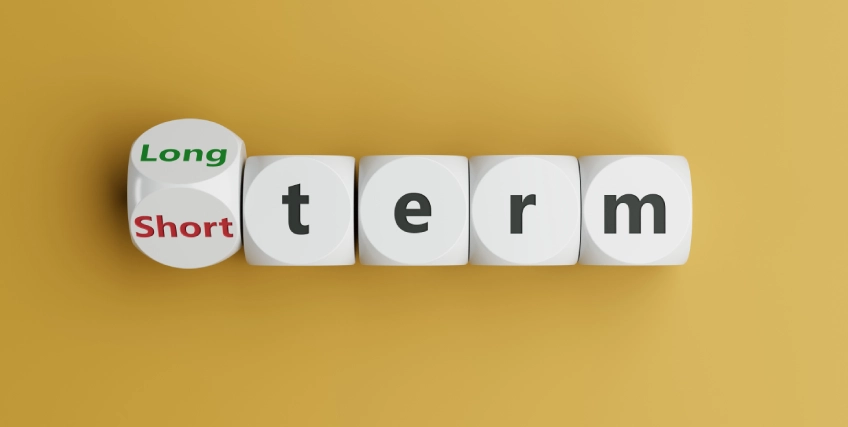Smart Commercial Loan Solution
For Real-World Business Needs
Looking for Business Financing?
Apply now for flexible business financing. Biz2Credit offers term loans, revenue-based financing, lines of credit, and commercial real estate loans to qualified businesses.
Set up a Biz2Credit account and apply for business financing.
Nothing can beat the rush of seeing your business grow from a startup to an established entity. And almost every entrepreneur is looking for ways to raise funding to make this journey as smooth as possible. Most of the business owners hope to onboard an investor with deep pockets who can offer boatload of capital into their growing company. Sounds almost like an episode from the Shark Tank, doesn't it?
But investor or venture capital is not the only financing option available to entrepreneurs today. Honestly, not every business needs or gets an investor. There is a very popular funding tool that often gets overlooked but one that makes more sense is a commercial loan. A strategic funding tool, a commercial business loan or commercial financing is what helped companies like Ford to turn their fortunes after 2008 recession and guided Starbucks to rise from a local coffee shop chain to an international brand. No matter what industry you are from or what your business goals are, a commercial loan can be just the tool to help you weather an economic storm or boost your growth.
What Are Commercial Loans?
A commercial loan is a type of financing product designed for businesses and not individuals. These funding options help meet expenses that are linked to running, expanding, or improving a business. From hiring seasonal staff to buying vehicles or upgrading facilities, the loan can be used for variety of reasons.
The main difference? Commercial loans are for business purposes only. They are not personal loans. Usually offered by banks, credit unions, or alternative lenders, these loans come with set terms for repayment that can range from a few months to several years.
However, in contrast to consumer loans, a commercial business loan usually requires extensive documentation and scrutiny. Lenders will closely assess your business’s cash flow, credit history, and debt obligations before approving financing. In some cases, collateral may be required too.
These loans are structured in many ways. Some businesses opt for term loans with fixed payments. Others may seek revolving lines of credit or real estate loans. The range of commercial financing options allows business owners to choose what fits best.
Small and midsize businesses make up a big portion of commercial loan applicants, especially those in service-based industries. According to Investopedia, commercial loans are crucial for business growth and working capital management. In simple terms, if you’re a business owner needing capital to operate or grow, a commercial loan might be the tool that gets you there.
How Do Commercial Loans Work?
A commercial loan works much like any other business credit, your business borrows a set amount, repays it over time with interest, and uses it strictly for business needs. But the structure and approval process are a bit more complex than a personal loan.
When you apply for a commercial business loan, the lender looks at your company’s financial health. This includes cash flow, business credit scores, outstanding debt, time in operation, and your industry. If your numbers check out, you may get approved for a loan amount that fits your capacity to repay.
Once approved, the funds are disbursed either as a lump sum or as part of a revolving line of credit. If it’s a lump-sum term loan, you’ll start making fixed or variable payments, typically on a monthly basis. Lines of credit give you flexibility, you draw funds as needed and pay interest only on what you use.
Commercial financing can be either secured or unsecured. A secured loan requires collateral like business assets or real estate while an unsecured one doesn’t, though it usually comes with higher interest rates. The better your credit and business fundamentals, the more favorable your terms and commercial loan rates will likely be.
Loan terms can vary greatly. You’ll find short-term loans with durations of 6 to 18 months and long-term loans that stretch up to 10 years. Some lenders may even offer balloon payments at the end of the term.
Before you agree to anything, it’s important to fully understand the cost of borrowing, including interest, origination fees, and any prepayment penalties. The U.S. Federal Reserve provides valuable guidance on assessing loan costs and terms (source).
In the end, a commercial loan works best when it aligns with your cash flow and your ability to manage debt smartly.
Do Commercial Loans Require Collateral?
Most commercial loans do require collateral, but not always. Collateral serves as security for the lender. If your business defaults on the loan, the lender can seize the asset to recover their money.
Collateral can take many forms, such as equipment, vehicles, real estate, inventory, or even accounts receivable. The value and type of collateral often influence how much a lender is willing to offer and what kind of commercial loan rates you receive.
That said, unsecured commercial business loans do exist. These don’t require you to pledge any assets. But they usually come with higher interest rates and stricter credit requirements. Lenders take on more risk with unsecured loans, so they often compensate by charging more or limiting the loan amount.
For newer businesses or those with limited assets, offering collateral can improve your chances of approval. It shows you’re committed and reduces the lender’s risk.
Different commercial financing options come with different collateral expectations. For example, equipment loans are secured by the equipment itself, while lines of credit may be backed by business receivables.
Understanding your business’s ability to offer collateral is a key step before applying for a commercial loan.
Types of Commercial Loans
There’s no single format for a commercial loan. Depending on your needs, including short-term cash flow, equipment purchases, or real estate expansion, different loan types exist to fit your goals. Below are some of the most common types of commercial loans available for small businesses.
Term Loans
A term loan is the most straightforward form of commercial financing. You borrow a fixed amount and repay it over a set term, typically with monthly payments and interest. These can be short-term (6–18 months), medium-term (1–5 years), or long-term (5–10 years or more).
Businesses use term loans for expansion, equipment upgrades, or working capital. The benefit is predictability: fixed payments help you manage your budget. However, approval can be tough without strong revenue or credit.
Since this is one of the most common types of commercial loans, many lenders offer competitive commercial loan rates, especially if you provide collateral or have a good credit profile.
Commercial Real Estate Loans
A commercial real estate loan is designed specifically for purchasing or refinancing business property, such as offices, warehouses, or retail spaces. These commercial business loans usually have longer terms (10–25 years) and lower rates than unsecured financing.
Real estate serves as collateral, which often leads to better loan terms. But keep in mind that if your business struggles to make payments, you could lose the property.
This commercial loan is ideal for businesses planning to stay in one location long-term. According to the U.S. Small Business Administration, property ownership can also offer tax benefits
Equipment Financing
If your business relies heavily on tools, vehicles, or machinery, equipment financing can help. This commercial financing option lets you borrow money specifically to purchase equipment, with the asset itself serving as collateral.
Loan terms usually match the expected life of the equipment. The benefit? You keep cash in hand while still upgrading operations. Monthly payments are predictable and, in some cases, tax-deductible.
This type of commercial loan is ideal for industries like manufacturing, pool cleaning, logistics, and construction, where physical assets drive the business.
Business Line of Credit
A business line of credit offers flexible access to capital. You get approved for a credit limit and can draw funds as needed. Interest is only charged on the amount used and ot the total credit line.
This is one of the most flexible commercial financing options. It’s often used for inventory purchases, payroll, or unexpected expenses. Unlike term loans, lines of credit are revolving, which means you can borrow again once you repay.
Lines of credit can be secured or unsecured. While unsecured options exist, better commercial loan rates often go to those with collateral or a solid credit history.
SBA Loans
While not issued directly by the SBA, these commercial business loans are partially backed by the U.S. government. They offer favorable terms, low interest rates, and longer repayment periods - sometimes up to 25 years.
SBA loans are highly competitive and require extensive documentation. However, they’re ideal for small businesses that might not qualify for traditional loans. If you’re expanding, buying property, or acquiring equipment, SBA-backed commercial loans are worth exploring.
Per the SBA’s official guidelines, these loans are designed to support small businesses with lower risk to lenders
Invoice Financing
Invoice financing is ideal for businesses with slow-paying clients. You borrow against unpaid invoices, which helps improve short-term cash flow. As customers pay, the loan is repaid.
This type of commercial loan works best for service businesses and B2B operations. It’s fast, collateral-light, and can stabilize working capital without long-term debt.
Though not always the lowest in terms of commercial loan rates, invoice financing can be a valuable tool in industries with delayed payment cycles.
Requirements for Commercial Loans
Before applying for a commercial loan, it’s crucial to understand what lenders typically look for. While exact criteria vary, most lenders focus on these core areas to assess your eligibility and risk level.
Business Credit Score
Your business credit score reflects your company’s repayment history. Scores typically range from 0 to 100. A higher score improves your chances of getting approved for a commercial business loan with better terms.
Lenders use this score to evaluate trustworthiness and gauge the risk of lending. If your score is low, you might still qualify, but expect stricter terms or a higher commercial loan rate.
Time in Business
Lenders prefer established businesses. Most require at least 1–2 years in operation before considering a commercial loan application. A solid track record shows stability and improves your chances of approval.
Startups or seasonal businesses might need to provide additional documentation or consider alternative commercial financing options if they don’t meet this requirement.
Annual Revenue
Your business’s yearly income plays a key role in loan approval. Most lenders have minimum revenue thresholds to qualify for a commercial loan. You can check with your lender for this requirement.
Strong revenue reassures lenders of your ability to repay, especially for larger loan amounts. Lower revenue businesses may still qualify, but possibly at reduced funding levels.
Collateral
If you’re applying for a secured commercial business loan, you’ll likely need to offer assets such as equipment, property, or receivables as collateral. This reduces the lender’s risk. Not every loan type requires it, but having collateral can lead to lower commercial loan rates and better approval odds.
Personal and Business Financials
Expect to submit tax returns, bank statements, profit and loss reports, and a balance sheet. Lenders need a full picture of your business’s financial health.
This helps them assess your ability to handle debt. Clear documentation also speeds up the approval process for most types of commercial loans.
Loan Purpose Statement
Most lenders will ask how you intend to use the funds. Be specific. Whether it's purchasing new equipment, expanding a location, or hiring staff, the use case matters.
A well-defined plan strengthens your application and shows you’re using the commercial loan responsibly.
Why Should You Apply for a Commercial Loan?
A commercial loan isn’t just a financial tool; it’s a growth lever. From solving cash flow challenges to investing in new opportunities, here are key reasons small businesses turn to commercial financing.
Business Expansion
If your business is outgrowing its current location or you’re opening new branches, a commercial loan can provide the funding to scale.
Expanding operations often requires capital for real estate, hiring, and inventory. Instead of dipping into cash reserves, you can use a commercial business loan to fuel growth while maintaining financial stability.
Equipment and Technology Upgrades
Upgrading equipment or investing in new tech can boost efficiency and reduce long-term costs. Equipment financing is one of the most common types of commercial loans used for this purpose.
Whether you're replacing outdated machinery or upgrading software, a commercial loan ensures you keep up with industry standards without straining your cash flow.
Working Capital Support
Managing day-to-day expenses, like payroll, inventory, and utilities, can strain your cash reserves. That’s where a commercial loan steps in to bridge the gap.
Lines of credit or short-term loans offer quick access to funds. These commercial financing options help stabilize cash flow during slow seasons or unexpected dips in revenue.
Real Estate Acquisition
Buying or renovating business property requires serious capital. A commercial loan structured for real estate can cover large upfront costs while spreading payments over time.
From office space to warehouses, these commercial business loans often come with longer terms and lower interest rates, especially if the property serves as collateral.
Credit Building
Taking out and responsibly repaying a commercial loan helps build your business credit profile. That can lead to better terms and larger funding amounts in the future.
A solid credit history opens doors to a wider range of commercial financing options, making future borrowing faster, cheaper, and easier to access.
Taking Advantage of Opportunities
Sometimes, an unexpected opportunity pops up, such as bulk inventory at a discount, a competitor selling their business, or a lucrative contract you can’t fulfil without funding.
A commercial loan gives you the flexibility to act fast without compromising your current operations. Quick access to capital can turn those moments into real growth.
Trusted by Thousands of Small Business Owners in America.**
Simply because we get what you go through to build a business you believe in.
**Disclaimer: All stories are real, as told by real business owners. Customers do not receive monetary compensation for telling their stories.
From One Entrepreneur to Another: We Get You
We understand what's behind building a business you believe in.
All stories are real, as told by real business owners. Customers do not receive monetary compensation for telling their stories.



Articles on Commercial Loan
Tips to Qualify for Unsecured Commercial Loans: Tips and Requirements
One of the first major challenges that a business owner faces is securing business funding.
Economic Indicators to Watch: Predicting Movement of Current Commercial Loan Rates
To predict the movement of current commercial loan rates, business owners, financial analysts, and lending professionals
Short-Term vs Long-Term Commercial Loans Which Is Right for Your Business
Every business can take its venture to the next level with the help of cash infusion, especially when the business is at the startup stage
How Commercial Construction Lenders Evaluate Your Project
Securing commercial construction loans isn’t just about having a great idea. It’s about proving your project makes sense
How to Choose the Right Commercial Construction Lender for Your Project
Selecting the right commercial construction lenders for your project is an important step to make sure that your project becomes successful.
FAQs on Commercial Loans
1. What can I use a commercial loan for?
A commercial loan can fund business expansions, equipment purchases, real estate, working capital, or even seasonal inventory. It gives you the financial flexibility to grow or stabilize your business operations depending on what you need most at the moment.
2. Do I need a perfect credit score to qualify for a commercial loan?
Not necessarily. While a strong business or personal credit score helps, some commercial business loan options exist for owners with fair or limited credit. In such cases, collateral, cash flow, or time in business can help balance the risk.
3. What’s the difference between secured and unsecured commercial loans?
Secured commercial loans require collateral—such as equipment, inventory, or real estate. Unsecured loans don’t require assets but may have higher interest rates and stricter terms. The choice depends on your credit strength, loan amount, and risk tolerance.
4. Are there fees besides interest in a commercial loan?
Commercial business loans may include origination fees, prepayment penalties, and closing costs. It’s essential to review the full cost structure before accepting a loan, not just the interest rate. Transparency here helps you avoid surprises down the line.
5. Do commercial loans affect personal credit?
If you sign a personal guarantee or use personal credit to apply, your personal score could be affected. However, repaying a commercial loan on time also strengthens your business credit profile, which helps with future funding.





